It was a bold gamble that is paying off for two Montreal women.
In a small non-descript warehouse in the central Montreal borough of Hochelaga-Maissoneuve, something unique is happening. The women are creating a food item from a variety of waste products.
Some 1,200 large perforated buckets are stacked in a small plastic covered greenhouse inside the building. From these are growing thousands of oyster mushrooms for their business called Blanc de Gris
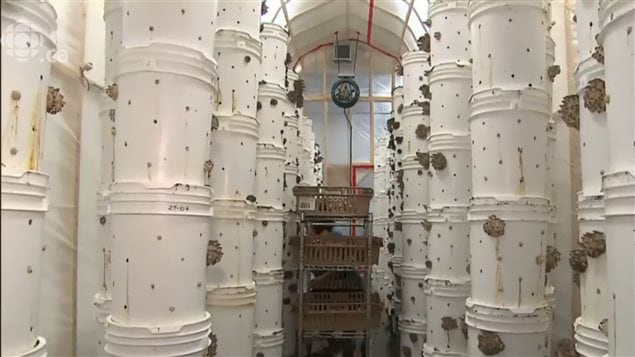
From these buckets the two co-founders harvest about 90 kilos of mushrooms per week which they sell to about 30 local restaurants.
In return they collect the restaurant coffee grind waste which would otherwise go into the garbage which goes into growing the mushrooms..
Co founder Dominique Lynch-Gauthier began her interest from harvesting wild mushrooms then began growing some in her home.
It’s not easy as the mushrooms require similar conditions to those found in their natural forest environment.
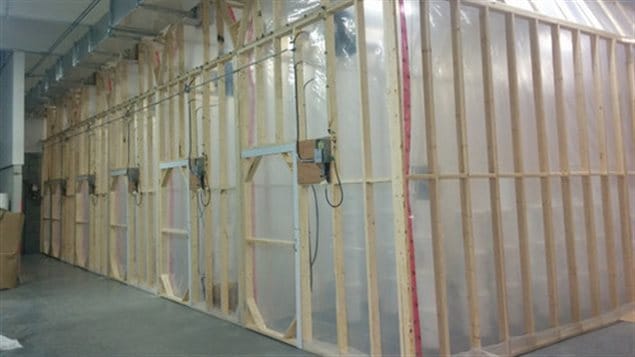
After two years of research, and wanting to be “green”, she came up with her own ideal recipe for the mushroom substrate. Along the way she was helped by a university horticultural programme, a story about a Parisian grower using coffee waste, and advice from a local mushroom expert.
The unique recipe for the substrate consists of the restaurant coffee grinds, a little straw, cereal residue from a local micro-brewery, some wood chips also from a local tree trimming sources, and a little straw.
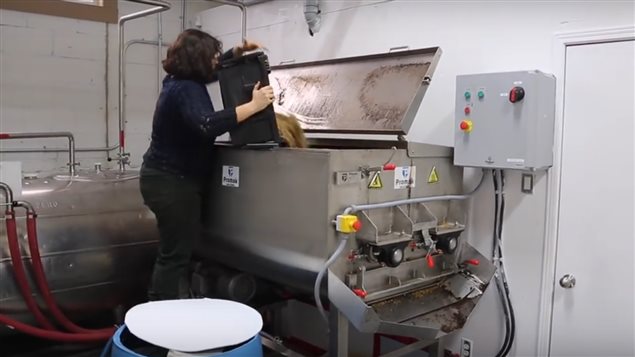
Once Dominique had a successful recipe, she then thought of turning this into a business, a career that she admits she couldn’t have imagined for herself a few years earlier. She brought in her childhood friend Lysiane Roy Maheu to help with the marketing and sales and together they created, “Blanc de Gris”
The various ingredients are mixed and pasteurized to remove bacteria before becoming the substrate for the mushroom. The material is then injected with mushroom mycelium and left undisturbed in the dark for two weeks to avoid contamination from any mould.
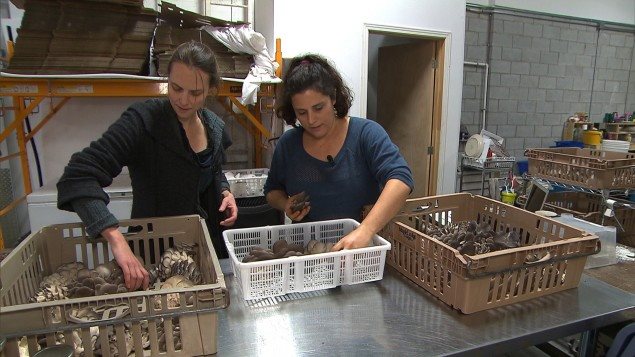
The buckets are then moved to the greenhouse where temperature and humidity are controlled.
The end result is an ecological and environmentally friendly product, and fresh.
Local restaurant chefs agree, noting that there is a pleasant nutty taste to the product and it’s firmer. The advantage of course is that it can be picked and delivered to the restaurants almost immediately ensuring that critical freshness. And in addition to making use of what would otherwise be sent to the garbage, because everything is locally sourced and delivered, there is an added environmental advantage as no shipping is involved.
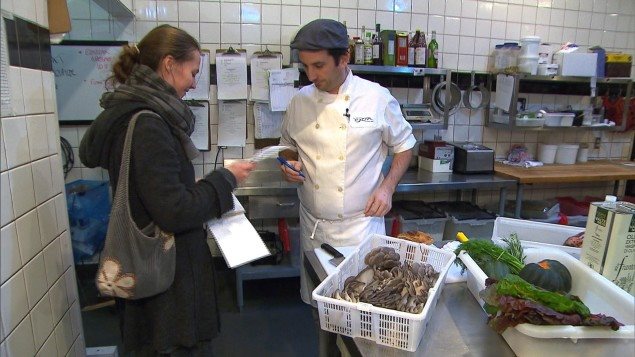
The two young women are now thinking of expanding their line by creating such things as mushroom marinades
Additional information- sources
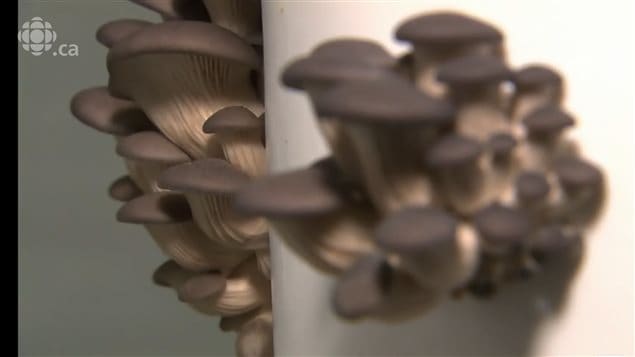






For reasons beyond our control, and for an undetermined period of time, our comment section is now closed. However, our social networks remain open to your contributions.